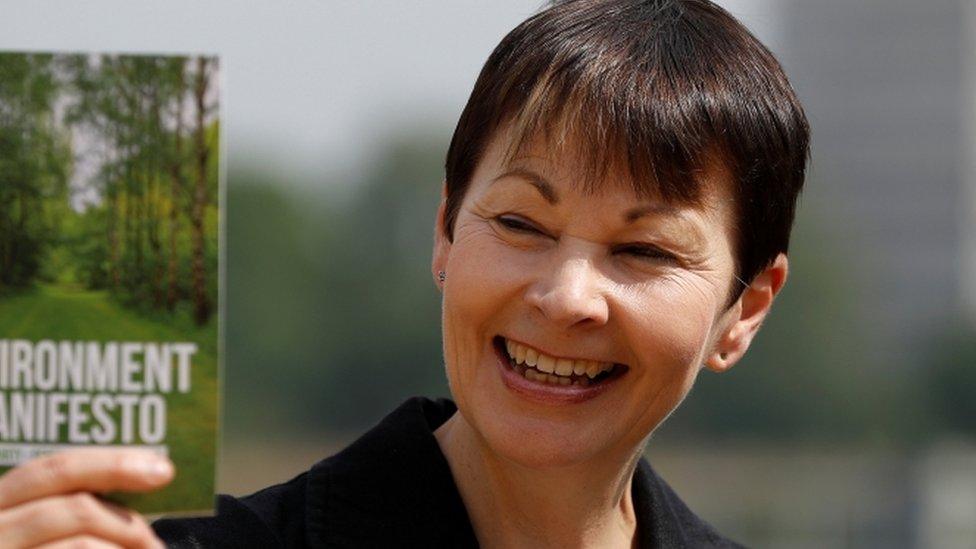Profile: Green Party co-leaders Caroline Lucas and Jonathan Bartley
- Published
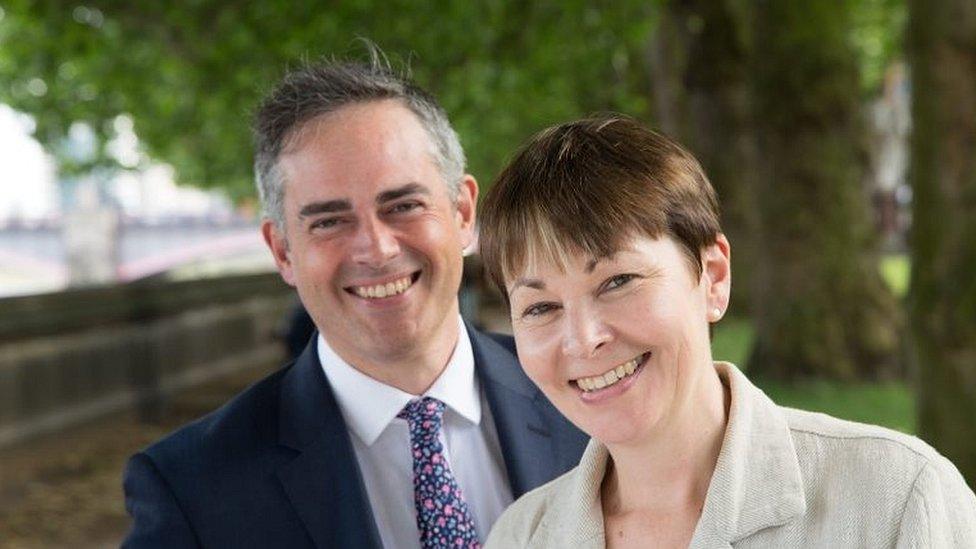
The Green Party of England and Wales has two co-leaders under what they say is a pioneering job-share arrangement.

Caroline Lucas
Caroline Lucas is the Greens' first, and so far only, MP and after seven years in the Commons she is the face of the party for many voters.
She was its first leader, elected in 2008 when the party abandoned its long-standing practice of having a male and a female principal speaker.
She stepped aside in 2012 - some said to concentrate on shoring up support in her constituency, although she insisted it was to "give other people the opportunity to get well-known, to have some profile in the party, hopefully to use that to get themselves elected as well".
She was replaced by Natalie Bennett but the new leader failed to be elected to the Commons in 2015, despite boosting her profile by participating in the leaders' debates at the last election.
Ms Lucas was re-elected to the Brighton Pavilion seat she took from Labour in 2010, with an increased majority of nearly 8,000.
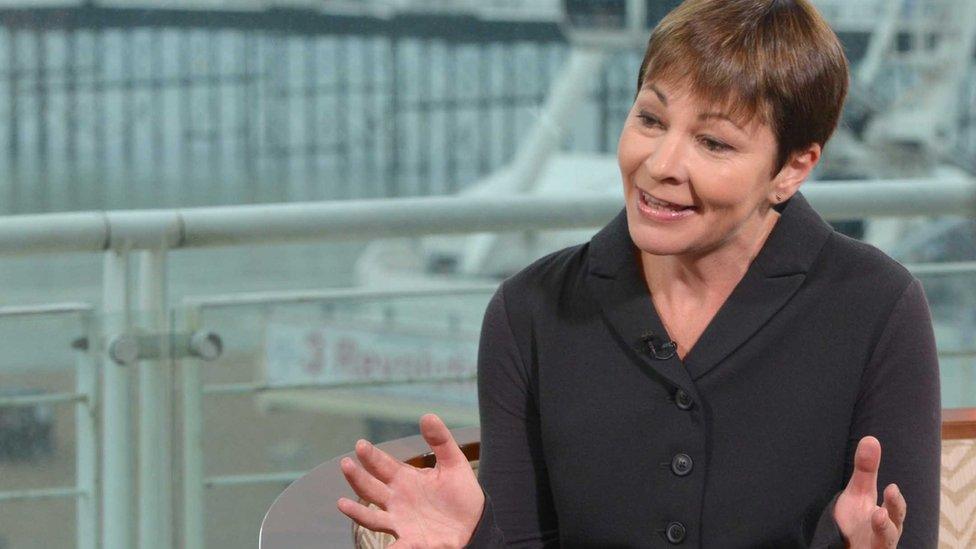
The 56-year-old, who was an academic before entering politics and has also served as a Green MEP, has established herself as a respected voice at Westminster. The Spectator magazine named her "newcomer of the year" in 2010.
She opposed the so-called "bedroom tax", the benefits cap, the renewal of Trident and the Sun's Page Three, while she hit the headlines in 2013 for different reasons when she was arrested during an anti-fracking demonstration.
One of three children of middle class Conservative-voting parents, she attended an all-girls boarding school before earning a degree in English Literature at Exeter University.
She threw herself into anti-nuclear weapons campaigns at university, frequently visiting the Greenham Common women's peace camp, and she remains a leading figure in the Campaign for Nuclear Disarmament and a former vice-president of the Stop the War Coalition.
Caroline Lucas: "I have tried to use the democratic processes...the government isn't listening"
Ms Lucas is a leading advocate of the so-called Progressive Alliance - a series of electoral pacts between left-leaning parties aimed at preventing the Conservatives from winning seats.
In her own seat, she will benefit from a deal with the Lib Dems, who will stand aside to give her a better chance of being re-elected.
The Greens will not field a candidate in neighbouring Brighton Kemptown to support the Labour candidate, and some other agreements have been struck around the country.
But she has expressed frustration at the refusal of Labour and Lib Dem leaders to endorse the idea nationally, saying it is the only way to combat what she says is the UK's "broken" electoral system and fight back against the "hard" Brexit she says Theresa May is plotting.
Like the Lib Dems, the Greens support a second referendum on the terms of any Brexit deal.
Ms Lucas is married with two children. Under her job-sharing arrangement with Mr Bartley, she leads the party's parliamentary and campaigning efforts in areas such as fracking and the EU, while Mr Bartley focuses more on organisation and policy.

Jonathan Bartley
Jonathan Bartley is a relative newcomer to Green Party politics, compared with Ms Lucas.
Active in the Green Party in south London for about five years, the 45-year-old stood for the party in the London Assembly elections but failed to win a seat. A year before that, he stood as a general election candidate in Streatham, coming fourth.
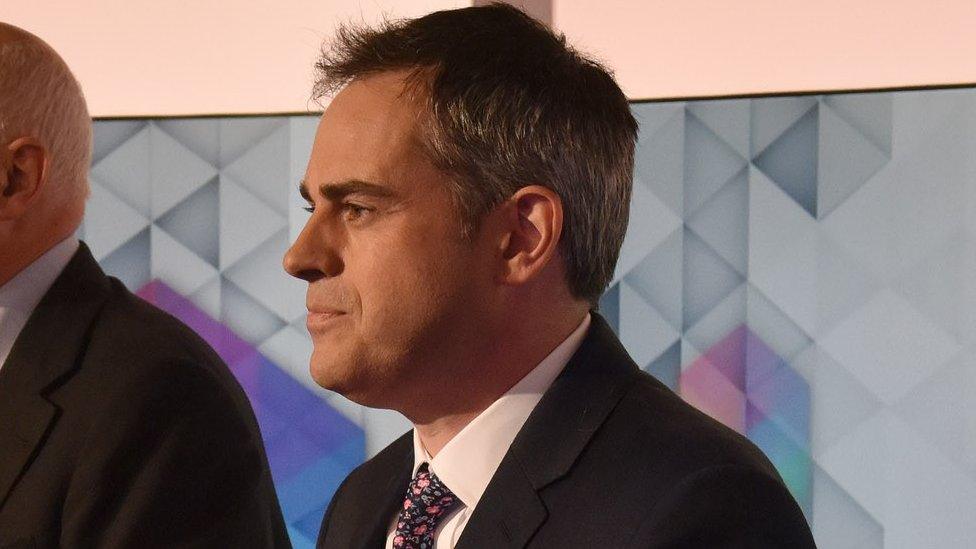
He studied at the London School of Economics in the early 1990s and is reported to have worked as volunteer for John Major in 1995 when the then prime minister faced a challenge to his leadership from John Redwood.
He founded the think tank Ekklesia in 2002 - only standing down as a director earlier this year - and became a commentator on issues of faith, religion and public policy.
First rising to national attention as vice-chairman of the Yes to Fairer Votes Campaign during the 2011 referendum, he helped ensure the Greens were a prominent voice.
He was a spokesman for the organisation in its ill-fated effort to persuade the public to ditch the current first-past-the-post electoral system in favour of the alternative vote.
But he is perhaps best-known for his public confrontation with David Cameron during the 2010 general election campaign, during which he raised his concerns about the treatment of disabled children in the education system.
Mr Bartley told the then prime minister about the two-year struggle he had faced to get his son Samuel into a local school and remonstrated with Mr Cameron about plans to end the bias towards inclusion of children with special needs in mainstream schools.
Mr Bartley, who is separated from his wife and has three children, is a direct descendant of the prison reformer Elizabeth Fry and is a drummer for the Mustangs blues group.
In March, he admitted in an interview with BBC Radio 5 Live that he killed a student in a car crash when he was 17 years old.
The accident happened while he was on his way home from a concert in London. The police did not press charges after an investigation.
Mr Bartley, who apologised to the victim's family after attending an inquest, which recorded a verdict of accidental death, said he "felt so responsible, so guilty" about what had happened and that it had turned his life upside down.
But he added that it was also one of the reasons he wanted to "bring about policy changes" to improve road safety and reduce the 40,000 deaths he said occurred every year from air pollution caused by traffic.
- Published25 May 2017
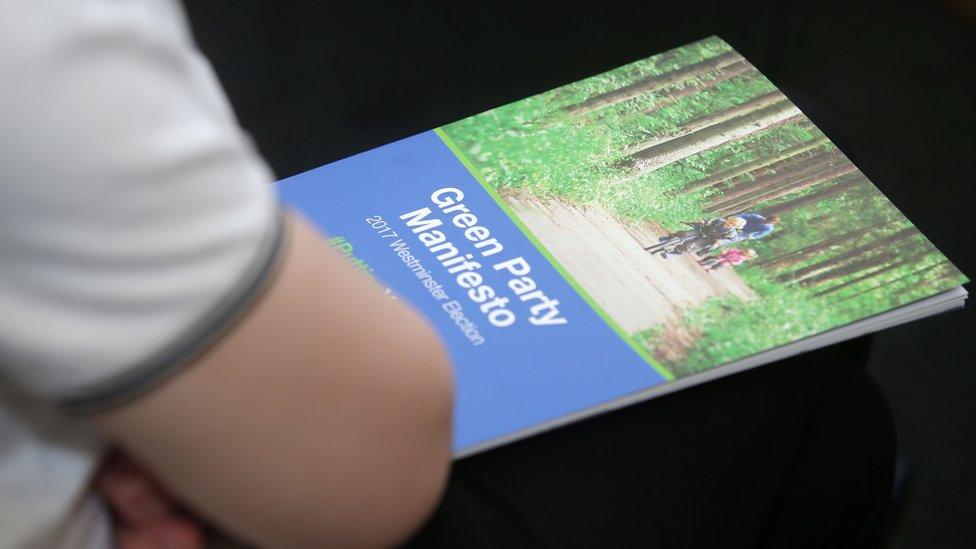
- Published22 May 2017
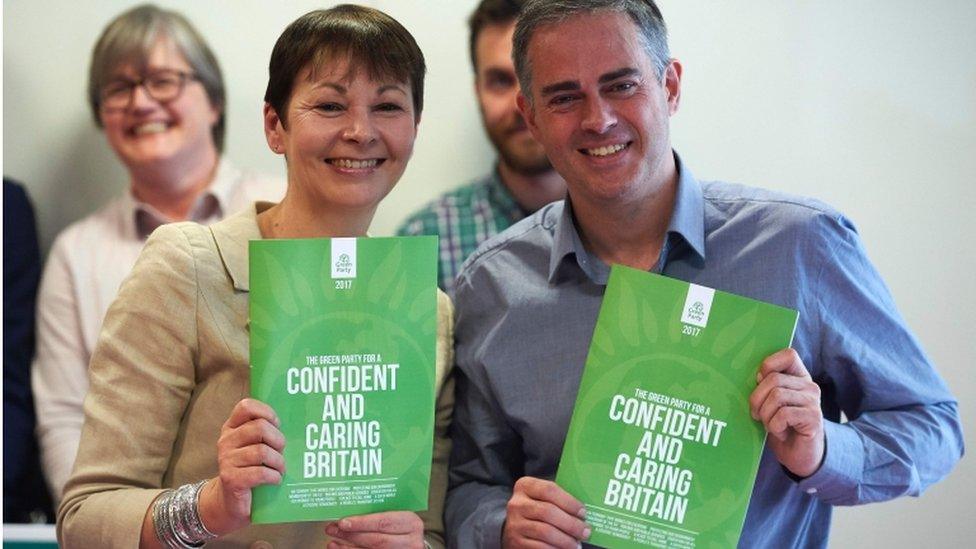
- Published18 May 2017
